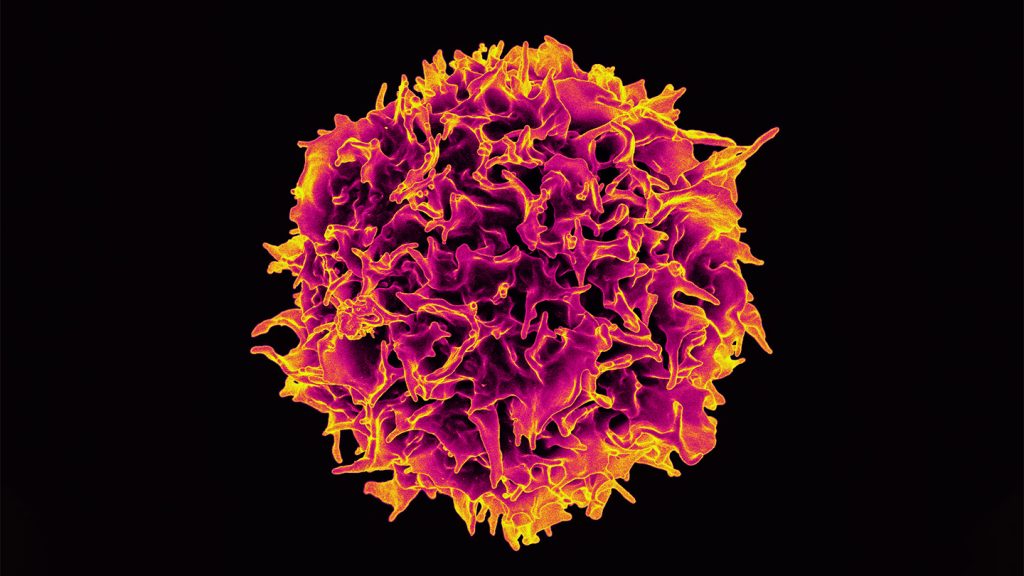Oncologist Steven Rosenberg has developed a groundbreaking TIL therapy that uses immune cells called T cells to target and destroy cancer cells. Tumor-infiltrating lymphocytes (TILs) are extracted from a patient’s tumor, grown in large numbers in a lab, and then infused back into the body to target and kill cancer cells. This therapy has shown promising results in patients with advanced melanoma, with some patients experiencing complete remission and others seeing significant benefits. The FDA has approved TIL therapy, known as lifileucel or Amtagvi, for advanced melanoma, making it the first T cell therapy approved for a solid tumor.
Researchers are conducting clinical trials to explore the effectiveness of TIL therapy in treating other types of cancer, including breast, pancreatic, and colorectal cancers. The therapy is particularly promising for cancers with high mutation rates, such as melanoma, lung cancer, and bladder cancer. While TIL therapy is still in early stages and not effective for all patients, it represents a significant advancement in the field of cancer treatment. Further research is needed to understand how to optimize TIL therapy and improve outcomes for patients with various types of cancer.
TIL therapy is a type of immunotherapy that harnesses the body’s own immune system to fight cancer. Traditional therapies, such as surgery, radiation, and chemotherapy, may not be effective in all cases, especially in cancers that have metastasized to other parts of the body. TIL therapy offers a targeted approach that can attack cancer cells without harming normal cells. By expanding T cells from a patient’s tumor and reinfusing them into the body, TIL therapy has the potential to eradicate cancer completely in some patients.
The development of TIL therapy represents a significant milestone in the field of cancer treatment. By targeting and attacking cancer cells at the molecular level, TIL therapy offers a personalized approach to cancer treatment that can potentially lead to long-term remission in some patients. Ongoing research aims to expand the use of TIL therapy to other types of cancer and improve its effectiveness through combination therapies and new treatment approaches. The FDA approval of lifileucel for advanced melanoma marks a new era in cancer treatment, with the potential for more effective and personalized therapies in the future.
Patients like Toni English, who benefited from TIL therapy for mucosal melanoma, have experienced life-changing results. English’s cancer had spread to her lungs, kidney, and brain before she started TIL therapy, and after receiving the treatment, she has been cancer-free for over six years. Her story highlights the potential of TIL therapy to offer hope and new treatment options for patients with advanced cancer. As researchers continue to explore the possibilities of TIL therapy, more patients may benefit from this innovative approach to cancer treatment.
The future of TIL therapy holds promise for treating a wide range of solid tumors and improving outcomes for patients with advanced cancer. By understanding the mechanisms of action behind TIL therapy and identifying biomarkers that can predict treatment response, researchers aim to tailor treatment strategies to individual patients and maximize the benefits of TIL therapy. As ongoing clinical trials explore the use of TIL therapy in different types of cancer and in combination with other treatments, the field of immuno-oncology continues to evolve, offering new hope for patients like Toni English and others facing challenging diagnoses.















